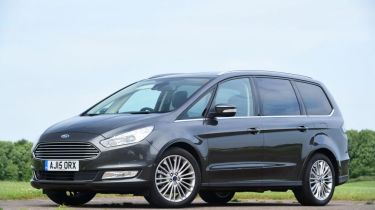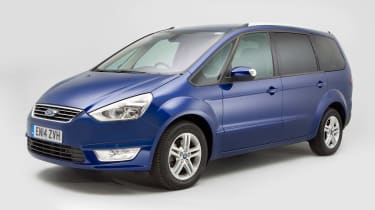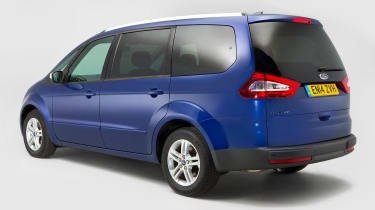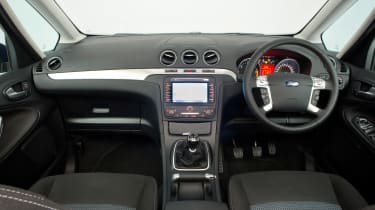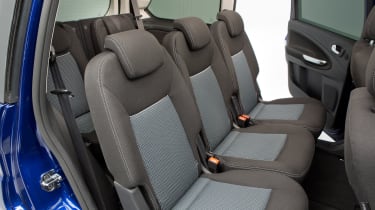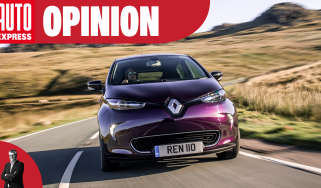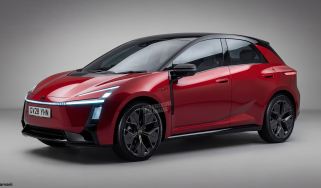Used Ford Galaxy review
A full used buyer’s guide on the Ford Galaxy covering the Galaxy Mk2 (2006-2015) and the Galaxy Mk3 (2015-date)
Ford Galaxy Mk2
History
The second-generation Ford Galaxy went on sale in June 2006 with a choice of a 2.0-litre petrol engine and either 123bhp 1.8 or 141bhp 2.0-litre TDCi diesels. By September 2007 a 2.3-litre petrol had been added to the line-up (which came in automatic form only), then in March 2008 a 2.2 TDCi diesel was introduced, alongside a Flexifuel option for the 2.0-litre petrol engine. This allowed the car to be run on E85 bio-ethanol as well as petrol, although there were few takers.
A facelift in April 2010 brought a tweaked design, plus new engines: a 200bhp 2.0-litre EcoBoost petrol alongside 113bhp and 161bhp versions of the 2.0 TDCi Duratorq diesel. From this point on the trim levels ran Zetec, Titanium and Titanium X.
Ford Galaxy Mk2 reviews
Ford Galaxy in-depth reviewFord Galaxy 1.6 T reviewFord Galaxy 1.8 TDCi LX reviewFord Galaxy 2.0 TDCi reviewFord Galaxy 2.0 TDCi LX review
Which one should I buy?
The Galaxy is a big car, so the only engines that make sense are the diesels. Aim for at least a 1.8 TDCi as the 1.6 (from 2011) struggles once the car is fully loaded. All Galaxys come with a reasonable amount of standard kit, but aim for a highspec model as there are plenty available.
The pre-facelift Galaxy was offered in LX (renamed Edge in 2008), Zetec and Ghia forms, with all cars featuring a heated windscreen as standard, plus air-con and electric front windows. The Zetec adds alloys, climate control and powered rear windows, while the Ghia comes with cruise control, plus automatic lights and wipers.
Alternatives to the Ford Galaxy Mk2
One of the most capable seven-seater MPVs around is the Kia Sedona, which is reliable, extremely spacious and very affordable, too. It’s not as good to drive as the Ford, though, and it’s not as versatile, either.
Used - available now

2016 Toyota
RAV4 Hybrid
66,895 milesAutomaticPetrol2.5L
Cash £14,995
2024 Volkswagen
Golf R
12,940 milesAutomaticPetrol2.0L
Cash £35,995
2013 Ford
B-Max
97,371 milesManualDiesel1.5L
Cash £2,995
2022 FORD
RANGER
41,540 milesManualDiesel2.0L
Cash £19,739The Chrysler Grand Voyager offers acres of space and practicality galore, but the interior feels cheap in places and the dynamics aren’t that impressive.
The current SEAT Alhambra and VW Sharan are more impressive than the Galaxy as they’re spacious and versatile, and come with some excellent engines and sliding rear doors. One of the biggest rivals comes from Ford’s own stable, however. The brand’s S-MAX is sportier, cheaper and more fun to drive, while offering nearly as much usable space.
What to look for
Front wipers
The spindles for the front windscreen wiper mechanism can corrode, leading it to seize. If caught in time it can be lubricated; otherwise it’s a £300 repair.
Power steering
All Galaxys come with power-assisted steering, which can be unreliable. Dealers can fix things, but owners are normally left to pay the full bill.
Electrics
Another problem can be the Galaxy’s electrics – especially the sidelights, windows and alarm system; the latter sometimes shows an on-dash error message.
Air-con
The air-conditioning system is a common failure point. On facelifted Galaxys the drier unit needs to be replaced every two years, but it rarely is.
Interior
Versatility is the name of the game here, with a total of 32 configurations for the seats. There’s room for seven adults, too, but the rearmost seats are a bit cramped and there’s not much luggage space with all three rows in use, at 308 litres. Fold all the rear seats, and this increases to 2,325 litres.
Running costs
Whichever engine is fitted, your Galaxy will need to visit the garage every 12 months or 12,500 miles. The service schedule runs minor, minor, major. Minor check-ups are priced at £215 and major services at £295 until the car is four years old – then the costs drop to £125 and £195.
On top of this, the brake fluid needs to be renewed every two years at £39 (£49 until the car is four years old) and fresh coolant is required every 10 years, also at £39.
All Galaxy engines are fitted with a timing belt apart from the 2.0-litre Duratec and 2.3-litre petrols. This belt needs to be replaced every 10 years or 125,000 miles.
Recalls
The Galaxy Mk2 has been the subject of nine recalls so far; the first was issued in July 2006 (just a month after the car went on sale) and the most recent in September 2013.
That first recall was because some cars could suffer from the engine cutting out due to a fuel pipe coming adrift. Since then there have been two recalls because of the glass roof becoming detached and two due to problems with the brake servo. There have also been issues with the heated windscreen and fuel leaks.
Driver Power owner satisfaction
The Ford Galaxy did not make our top 150 in the 2016 Driver Power satisfaction survey, however it finished 159th in 2015. Unsurprising is its 15th place for practicality that was the only top 100 score. It ranked 197th for reliability, which is not good news, and neither is 185th for build quality.
Verdict
Ford doesn’t make many bad cars, and the Galaxy is every bit as capable as its siblings. Spacious, well equipped, good to drive and comfortable, it promises much – and largely delivers. Ever since it arrived, the Galaxy Mk2 has notched up one award after another, including gongs for its safety and security. It was crowned Auto Express’s Best MPV when it went on sale in 2006, thanks to its blend of value and versatility. But as you can see from our Driver Power surveys, reliability can be an issue, so check any potential purchase before committing.

